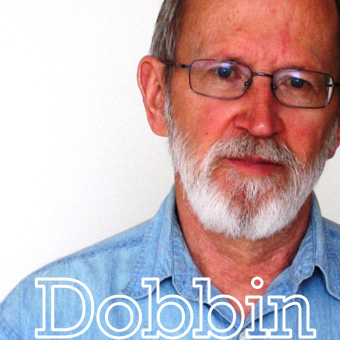A Harper majority and the remaking of Canada
Stephen Harper’s announcement that he is going to reach his deficit elimination goal a year early and do it by lopping $11 billion off federal spending is in effect lifting the veil on his long feared “hidden agenda.” It is hidden no more as the polling numbers, for both his leadership and his party’s support, hold steady at high enough numbers that he can imagine a majority.
He wants a mandate to slash government and feels the opposition’s failure to make a dent in his lead gives him the opportunity. He camouflages it with new spending announcements – $2.5-billion annual tax break for parents, $2-billion in compensation for Quebec for HST transition, and more than $200-million in yearly new spending. But make no mistake as finance Minister Jim Flaherty says this will shrink the government. And it is just the opening round.
One of the most popular concepts on the political right over the years has been the notion of “social engineering.” The phrase is intended to describe a process by which liberals and the left – that is Liberals and the NDP “engineer” society – that is, set out to remake it – by implementing government programs, intervening in the economy, and redistributing wealth so that there is a measure of economic equality (in a system defined by inequality). The implication is that these changes were undemocratic and illegitimate – imposed by politicians, intellectuals and bureaucrats.
Yet right-wing social engineering is exactly what Stephen Harper intends to do and has already done in countless small and not so small ways. We are now a far more militarized culture than we were when he came to office four years ago – with an aggressive “war-fighting” military. Our foreign policy is now in lock-step with that of the US. This has never been debated in Parliament nor has the Conservative party actually run on such policies. In spite of the fact of widespread support for new social programs like child care and Pharmacare, such programs are ruled out by the Harper government. While his minority government status has so far prevented an assault on Medicare and the Canada Health Act, Harper is on record as supporting increased privatization and two-tier Medicare.
This is true social engineering if by that term we mean the illegitimate remaking of Canadian society and governance. When all the social programs and activist government programs that Stephen Harper objects to were implemented there was widespread public support for them. Governments were responding to social movements demanding these things: unemployment insurance, Medicare, subsidized university education, Family Allowances, public pensions, old age security. These programs were not imposed by a cabal of liberal and socialist intellectuals and bureaucrats – they were rooted in the expressed values of Canadians. Even in Saskatchewan, where Medicare was founded, there was a powerful movement for the program, resisted by the CCF government for many years.
Stephen Harper’s determination to remake Canada in the image of unregulated capitalism is illegitimate because it aims at dismantling what decades of democratic engagement has created. It is even more outrageous given the fact this fundamental shift is being undertaken by a government which received support from less 23 per cent of the eligible voters. Canadians have not changed their minds about these programs and values – if anything support has been reinforced by the perceived threats to these gains. These things were the actual fruits of democracy – its ultimate litmus test. Stephen Harper’s plan to rid the country of this legitimate evolution of social and economic change is true social engineering, and profoundly anti-democratic.
While Stephen Harper had just a minority government he could not fundamentally change the country’s direction through legislation as the opposition could vote him down. But the quirks of minority governments allowed Harper to control spending regarding any program and he did not have to raise the question in the House of Commons at all. That means that he can keep legislation on the books establishing various institutions but in effect make them disappear by cancelling their budgets, as he did with Law Commission of Canada. Eliminating the LCC was an important policy decision that arguably should have been the subject of debate in the House – eliminating it by cancelling its budget was legal, but not democratic.
There are numerous examples of Stephen Harper using his control of the purse strings of government, engaging in right-wing social engineering. One of the most prominent examples is his attack on culture – a favourite target of right wing regimes. The Bush administration also attacked culture because writers, film-makers, playwrights, and artists are often the most effective social critics.
In Canada governments have always played a major role in funding the arts. But in the run up to the November, 2008 federal election, Harper announced $40 million in cuts to Canadian arts programs. In the short term, it backfired – costing Harper many seats in Quebec which takes culture more seriously than anywhere else in Canada. But the cuts were not reversed and the country will change as a result. While $40 million does not sound like much it sustained thousands of cultural workers, and funded thousands of artistic creations reflecting the country.
Another target of Harper’s engineering is pure science. The January 28, 2009 budget implemented huge cuts to three of the most important and prestigious grant-making agencies in the country – the Canadian Institutes of Health Research, the Natural Sciences and Engineering Research Council, and the Social Sciences and Humanities Research Council. A large percentage of scientists and academics working in Canada rely these agencies to fund their research. The budgets were reduced collectively by $113 million over the next 3 years.
Genome Canada was expecting about $120 million to help kick-start new international research projects (some led by Canadian researchers) Instead there was no mention of the project – and no money. The government also implemented $35 million in cuts to the National Research Council, one of the oldest in Canada and one of the most highly respected science agencies in the world.
The cuts to science should remind people that the social revolution being planned by Harper is rooted in evangelical Christianity. There is a direct line from Harper through Preston Manning back to Manning’s father Ernest who ran Alberta for decades. Manning senior had this to say: “Giving to the individual societal benefits such as free medical care … breeds idleness… causing a break down in his relationship with God … where the state imposed a monopoly on a service … the sinful philosophy of state collectivism scored a victory.”
As if to underline the religious dimension of his social engineering, Harper also announced that he would establish a Department of Religious Freedom.
Harper, always the risk-taker, is taking a big risk here. But so long as the opposition parties shy away from exposing what Harper will do with a majority and focus on a myriad of unrelated policy announcements, the man could be successful at what will in effect be a right-wing Christian coup d’état: a revolutionary remaking of the country. He would have four years to do it. Undoing it would take a generation.
Murray Dobbin is an author and journalist. This column originally appeared in his blog. Published here with permission.



























Comments